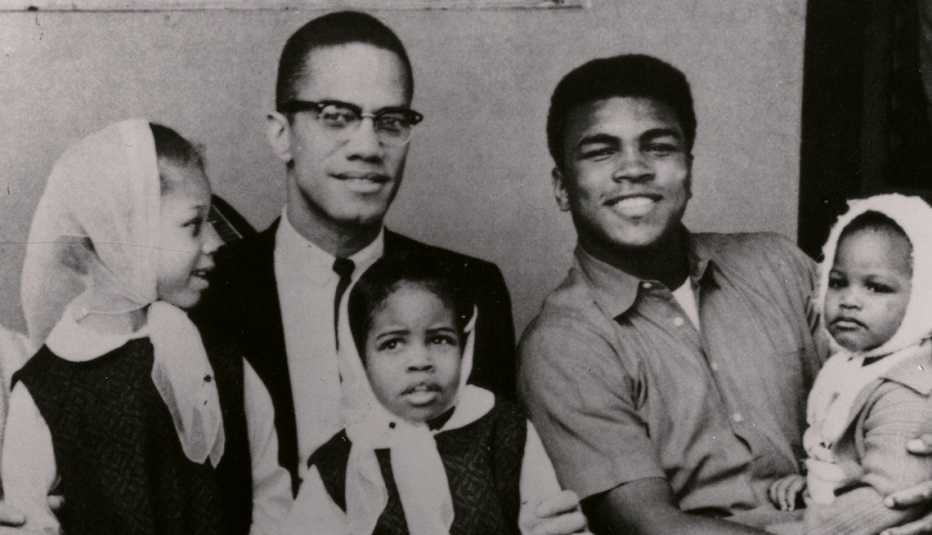AARP Hearing Center


Muhammad Ali’s daughter Maryum Ali, 53, and Malcolm X’s daughter Ilyasah Shabazz, 59, both appear in Marcus A. Clarke’s Blood Brothers: Malcolm X and Muhammad Ali, the new Netflix documentary about their historic three-year friendship and falling out. Both women are eminent in their own right, following in their fathers’ crusading footsteps, and both wrote books about them.
Ali (May May to her friends) has worked as a rapper, stand-up comedian, regional manager for the Los Angeles Mayor's Office of Gang Reduction & Youth Development, spokesperson for the Parkinson Alliance and, in the 2016 A&E series 60 Days In, an undercover reporter pretending to be an inmate in an Indiana jail.
Shabazz, a John Jay College of Criminal Justice professor, helps at-risk youth through Ilyasah Shabazz Enterprises and is a trustee of the Malcolm X & Dr. Betty Shabazz Memorial and Educational Center — in the building where her father was assassinated. Sony Pictures Television is developing a series based on her books X: A Novel and The Awakening of Malcolm X.
Ali and Shabazz shared with AARP their thoughts and emotions about their dads’ impact.


What's distinctive about this documentary?
Maryum Ali: I've seen myriad documentaries on Malcolm X, and been in some. This film explores something that really hasn't been talked about as a focal point, which is the friendship of my dad and Malcolm X, the multifaceted dynamics of these two men. Because it's a sore spot for a lot of people who love my father and Malcolm X — them not being friends anymore after three years. It's something people really like to talk about. But, you know, it's a part of history. And I think the film does a really great job in looking at their backstory and setting a context for it.



































































More From AARP
8 Ways Muhammad Ali Changed the World That Go Far Beyond Boxing
Plus 5 films about his remarkable life you can stream now
New PBS Film on Ernest Hemingway Tells All
Ken Burns says you don't have to like the writer to appreciate his artPBS Documentary Looks at Powerful Role of 'The Black Church'
Henry Louis Gates Jr. explores its 400-year influence